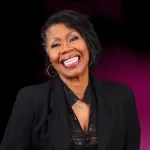By Gwen McKinney | Word In Black

(WIB) – Six decades ago, the March on Washington for Jobs and Freedom was a pivotal moment in the sustained march to full citizenship. With little credit or spotlight, Black women fueled the campaigns that led up to one of the largest mass gatherings in our nation’s history.
They coordinated volunteers; conducted fundraising, reserved buses and hotels; prepared food and managed virtually every logistical element that delivered an estimated 250,000 people to the Lincoln Memorial.
Still, they were relegated to second-class citizenship. Denied a voice at the podium, they were even sidelined and segregated to a secondary procession route (the men marched to the Lincoln Memorial via the camera-lined Constitution Ave. and the women were directed to gather and proceed from Independence Ave.).
With little credit or spotlight, Black women fueled the campaigns that led up to one of the largest mass gatherings in our nation’s history.
Although history recorded August 28, 1963, as a glorious day for a surging movement, Black women and their essential role were erased. Twelve men were featured in prominent speaking roles and as they basked in the successful aftermath of the march, 10 leaders — no women among them — were invited to meet with then President John Kennedy.
Key decision makers were part of an all-male leadership group dubbed “the Big Six.” Anna Arnold Hedgeman, a forceful self-affirmed feminist who wedged her way into that inner circle, insisted that women speakers be enlisted. Joined by Dorothy Height, of the National Council of Negro Women, the two met resistance with the rationale that too many speakers were already slated.
Even recruitment of a single woman speaker would be problematic. The organizers reasoned that selection would spur a “cat fight” among her competitors.
Although history recorded August 28, 1963, as a glorious day for a surging movement, Black women and their essential role were erased.
Eventually the men relented and selected Myrlie Evers, wife of slain Mississippi activist Medgar Evers. Confronted with travel complications on the morning of the march, her replacement was Little Rock NAACP head Daisy Bates. She was asked to deliver a speech written by a male organizer that ran barely one minute.
In a show of rebellion, Maryland activist Gloria Richardson approached the podium to greet the masses. Reportedly rebuffed and the microphone yanked away, all she could utter was “Hello.”
As a concessionary olive branch, labor leader and march commandant A. Phillip Randolph paid tribute to six of the women leaders, stumbling over names and requiring coaching from the rear. The accolades went to Daisy Bates, Myrlie Evers, Prince Lee, Diane Nash, Rosa Parks, and Gloria Richardson.
Contributions from legions of Black women were invisible but indelible.
Each of them, giants for their historical contribution, were stand-ins for sister leaders shunned or forgotten. To name a few: Ella Baker, Fannie Lou Hamer, Constance Baker Motley, Eleanor Holmes Norton, Judy Richardson and Aileen Hernandez.
Contributions from legions of Black women were invisible but indelible. Foot soldiers of the civil rights movement nationally and from the ground, their toil and service were massive. Despite marginalization, Black women never missed a beat in their sustained march to be seen, heard and unerased.
Fast forward 20 years — change on the horizon. The commemorative March on Washington II, August 27, 1983, was shaped by the vision of Coretta Scott King and other prominent women including rising young activist Donna Brazile. Tapped as the March director, she oversaw every aspect of the event which drew an even larger crowd than the 1963 March.
“How can I forget the 20th Anniversary march,” commented Brazile recently. Then a 24-year-old activist, she is now a seasoned political consultant and media analyst. She credits the 20th Anniversary march as a springboard into the successful campaign to mark M.L. King’s birthday as a federal holiday.

Gwen McKinney is the creator of Unerased | Black Women Speak and is the founder of McKinney & Associates, the first African American and woman-owned communications firm in the nation’s capital that expressly promotes social justice public policy.


